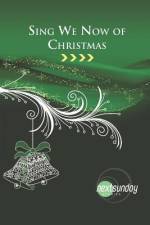av C. Franklin Granger
115,-
A carol is simply a festive song, often of a dance-like or popular nature. Carol-singing was one of the pagan customs the medieval church adopted, initially at both Easter and Christmas. The earliest English Christmas carol was written around 1350. The period from 1400-1550 was the heyday of the English Christmas carol. However, after the Reformation, some in the church suppressed the custom. Puritans saw it as a pagan activity, and John Calvin promoted singing only metrical psalms in the sanctuary. By contrast, Luther adored congregational singing and wrote several Christmas hymns in the style of folk songs and other popular tunes. Throughout most of the 1700s the only officially permitted Christmas hymn in the Church of England was "While Shepherds Watched." The second carol to be approved, toward the end of the century, was "Hark! the Herald Angels Sing." Carols seemed to have had more success in remote country churches. Over time, carol-singing left the church and became focused in the home, the streets, and the meetings of religious dissenters.Carols were finally brought into the mainstream of Anglican worship in the mid- to late nineteenth century. J. M. Neale published Carols for Christmas-tide in 1853. The cathedral choir in Truro, England, switched in 1878 from singing around town on Christmas to having an evening service inside the church consisting of two Scripture lessons, prayers, and a sermon, interspersed with carols. Two years later, the service was expanded to nine lessons and carols, providing the model used in 1918 at King's College, Cambridge. In this unit, we will explore some of the familiar prophecies, as well as the Gospel birth narratives, through the lens of five traditional Christmas carols. As carols have grown to be a fuller and more meaningful part of our worship and celebration, so too can the stories of Jesus' birth continue to grow within us and enrich our faith experience.

